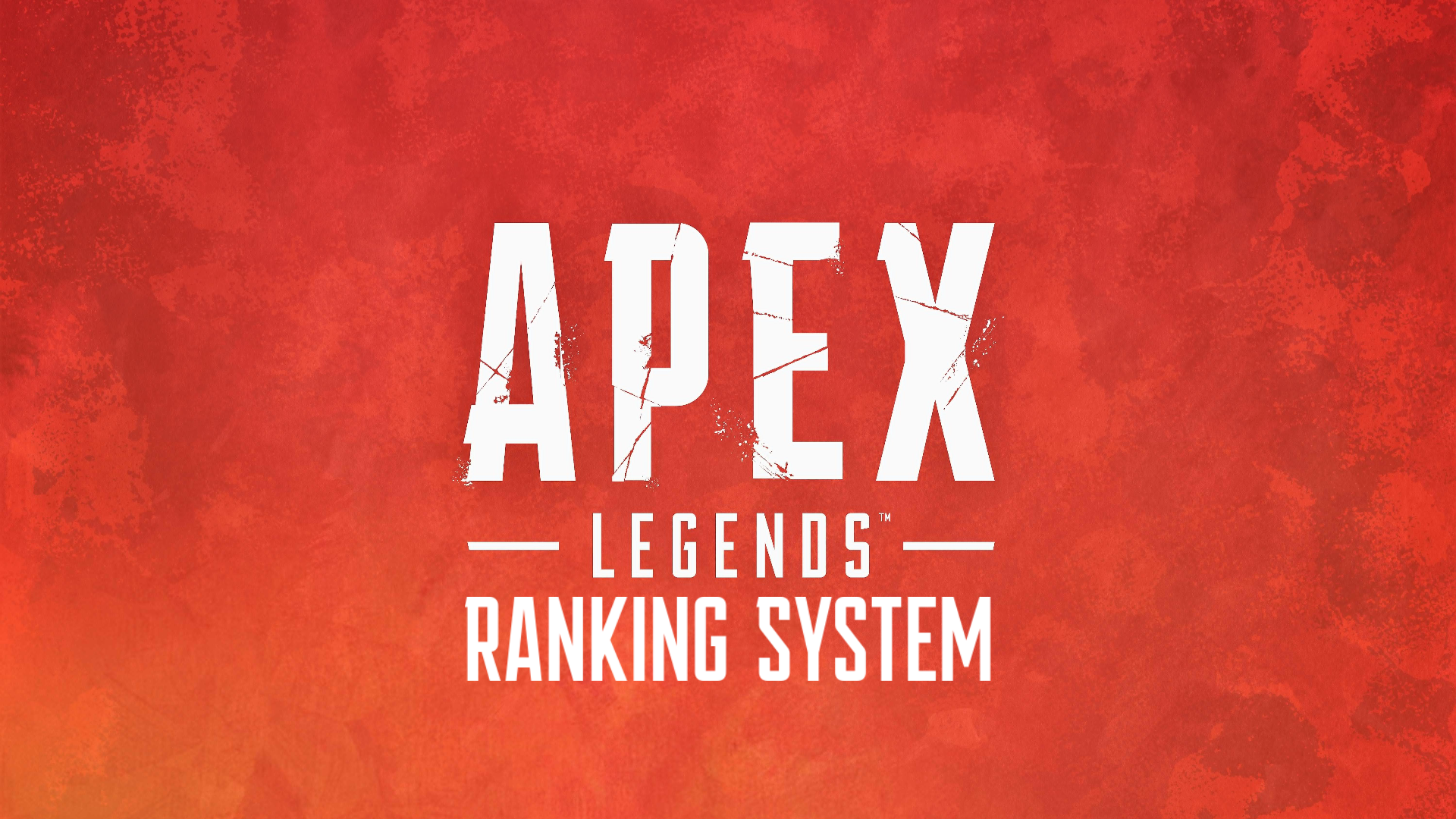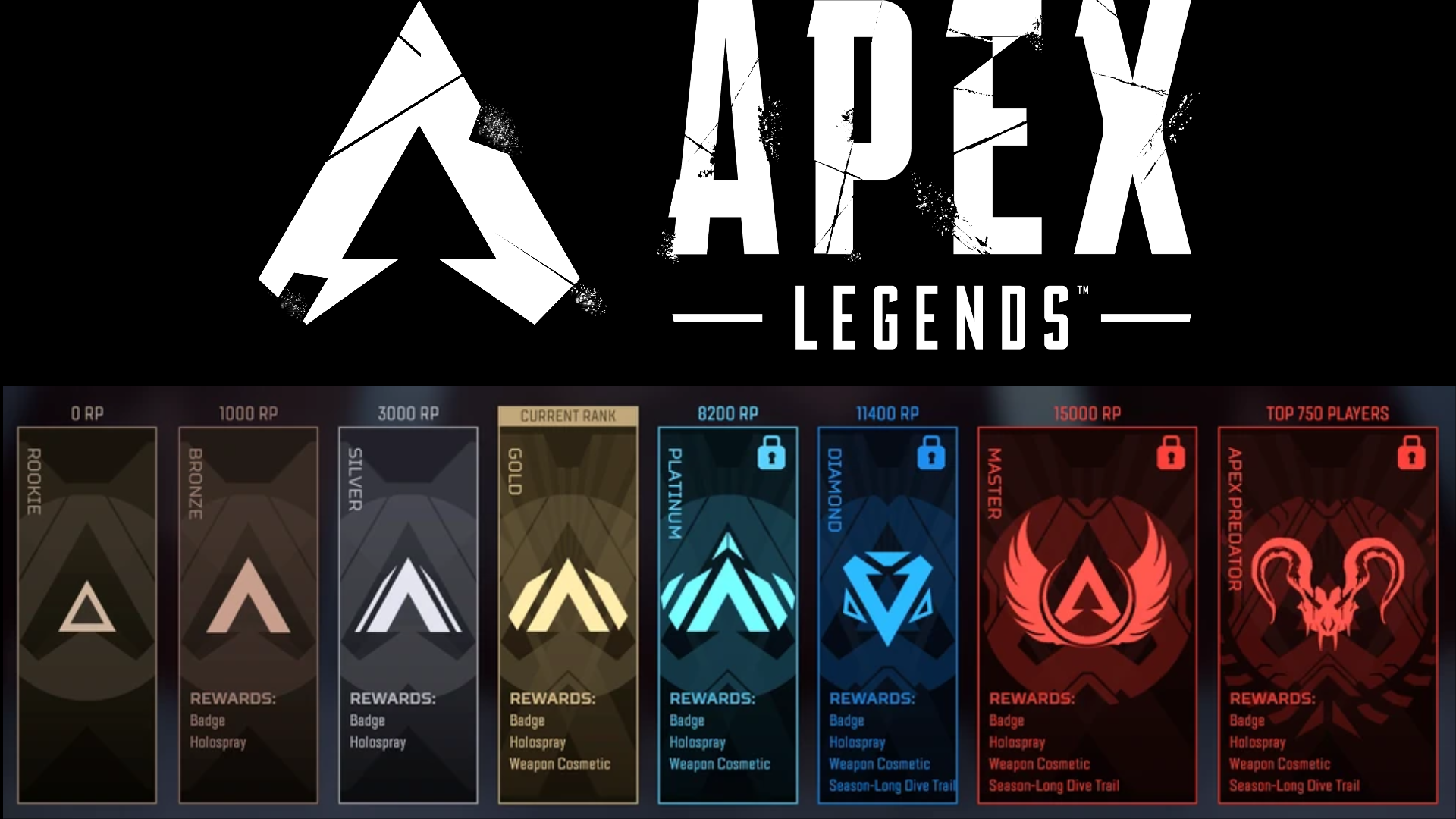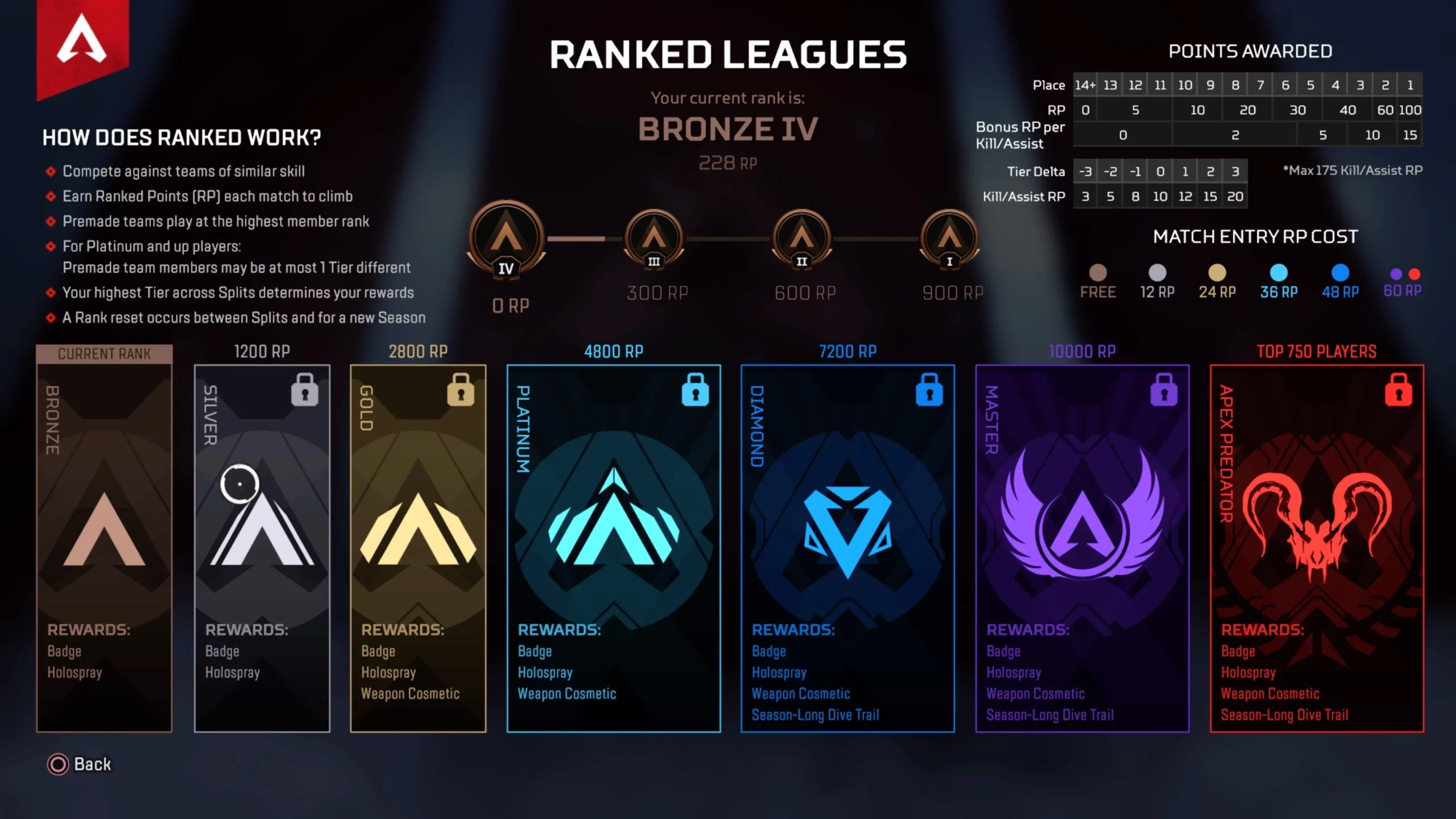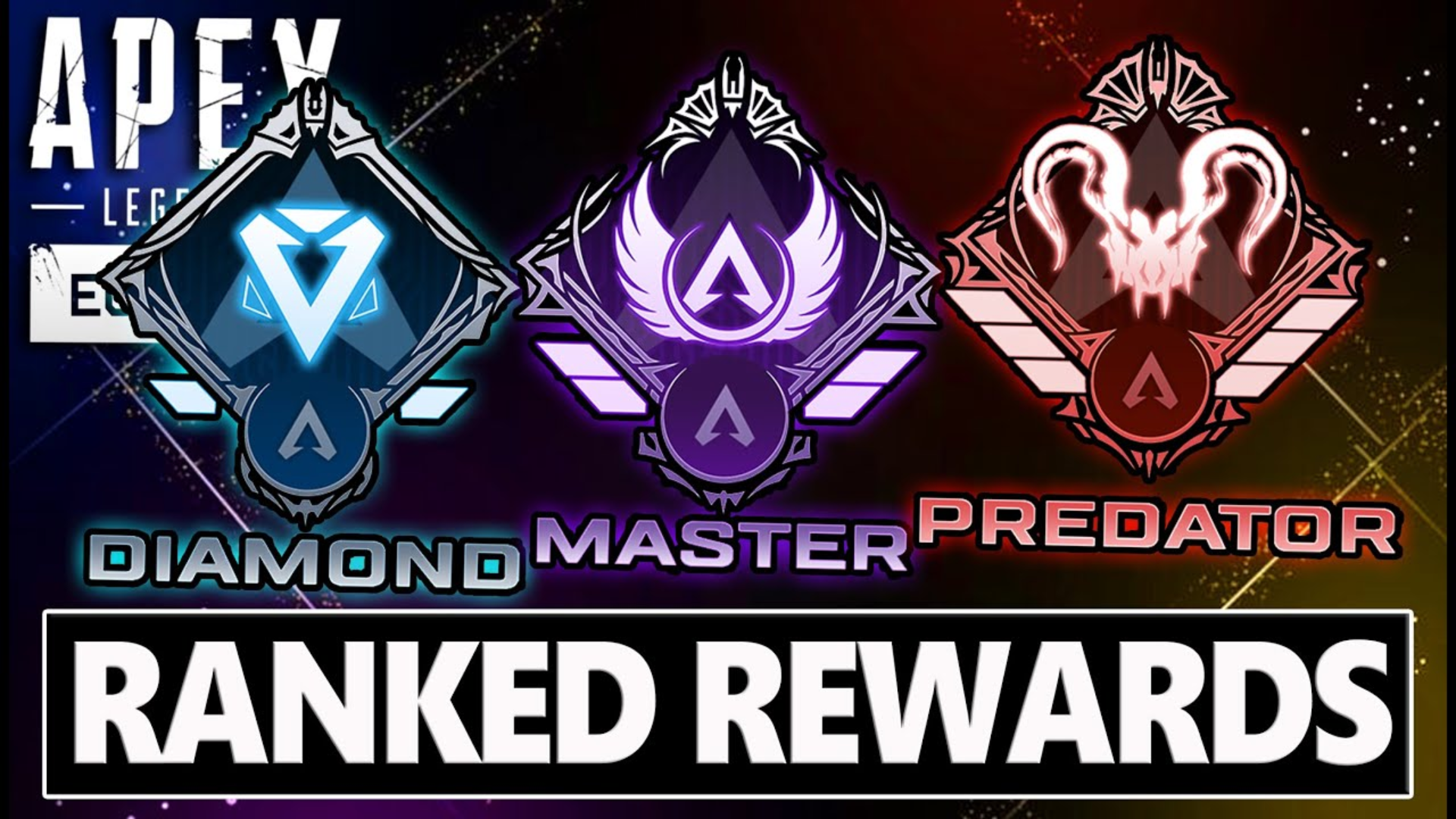Respawn Entertainment developed Apex Legends, a free-to-play battle royale-hero shooter published by Electronic Arts. The game was released for PlayStation 4, Xbox One, and Windows in February 2019, for Nintendo Switch in March 2021, and for PlayStation 5 and Xbox Series X/S in March 2022. Apex Legends also has a mobile edition with the game being just as popular as the other platforms. The mobile version of the game is now available worldwide.
Apex Legends is a popular battle royale game and has a season structure in which new content is released every three months. The current season is set to last for three months. Season 2 brought major balance changes, a new Battle Pass, and a new Legend. The 15th Season of Apex Legends began on the 1st of November, 2022, titled Eclipse.
Apex Legends offers players a variety of ways to engage in competitive play. One of the most notable of these is the game’s Ranked Tiers and Ranked Leagues system. This system allows players to compete in a more structured and competitive environment, with rewards given out to those who perform well.
Apex Legends: Ranking System
The ranking is determined by a player’s Matchmaking Rating (MMR). The MMR is calculated based on a variety of factors, including a player’s overall performance in matches and their win/loss record. Players gain or lose MMR points based on their performance in each match, and as they gain or lose points, they will rise or fall in rank.
In addition to the overall ranking, there are also separate leaderboards for each legend (character) in the game. These leaderboards show the top players for each legend, and they are also determined by MMR.
It is also worth noting that players can increase their ranks by winning matches and performing well in them. However, there’s no penalty for losing a match. Additionally, you can improve your MMR by playing with a squad of players with a higher MMR than yours as matchmaking tries to balance teams in terms of MMR.
Apex Legends: Ranks Explained
The Ranked Tiers system in Apex Legends is divided into several different levels, each with its own unique set of requirements and rewards. The lowest rank is Bronze, available to all players, and requires no RP (Ranked Points) to participate. As players earn RP, they can advance through the ranks, eventually reaching Diamond, the highest rank in the game.
For new players who have never played Ranked Battle Royale before, the Rookie tier is a one-time introductory tier. There are no rewards attached to it, and you cannot be demoted to it with new seasons. To progress from Rookie to Bronze, you need 1,000 RP, which puts you in Bronze IV. You can no longer be demoted back to Rookie once you reach 1,000 RP and the Bronze IV tier. If you don’t get to Bronze IV, you’ll go back to Rookie.
Players are placed into one of the seven Tiers based on their RP, Bronze, Silver, Gold, Platinum, Diamond, Master, and Apex Predator. Each Tier represents a player’s skill level and offers rewards at the end of each ranked series. As players progress through the ranks, they will need to earn more RP to advance, as mentioned below for each rank.
- Rookie: Introductory Tier
- Bronze Rank: 1,000 RP
- Silver Rank: 3,000 RP
- Gold Rank: 5,400 RP
- Platinum Rank: 8,200 RP
- Diamond Rank: 11,400 RP
- Master Rank: 15,00 RP
- Apex Predator: Top 750 players in each platform
Ranked Leagues Explained
Apex Legends also has a system called Ranked Leagues. It is a more competitive environment, reserved for the most skilled players. Players in the Ranked Leagues compete against each other in a series of games, and at the end of the series, the top players are promoted to the next League while the bottom players are demoted.
The Ranked Leagues start with Bronze, up to Apex Predator with different thresholds and RP rewards for each. The RP required to advance through the ranks increases as players move up the ladder, with the entry cost starting at Bronze and increasing by 3 RP per tier. Additionally, the threshold for each ranked tier has increased by 200 RP, meaning players will need to earn more RP to progress through the ranks.
If a player falls below the RP threshold for their current rank, they will be demoted to the next lower rank. Demotions also come with demotion protection for three games, meaning that players will not be demoted until they have lost three consecutive games. However, players will be able to reclaim their rank by earning RP again and achieving a positive RP score.
Ranked Rewards
Rewards for achieving a high rank or a good placement in a league are a combination of in-game items, weapon skins, and badges that showcase the player’s skill and dedication to the game. As players move up the ranks, they will be able to earn more valuable rewards, such as exclusive weapon skins and badges.
In conclusion, Apex Legends’ Ranked Tiers and Ranked Leagues system offer players a challenging and competitive environment where they can test their skills and earn valuable rewards. The system is divided into several different ranks, each with its unique set of requirements and rewards, and players must work their way up the ranks by earning RP.
In addition, the Ranked Leagues system provides an even more competitive environment for the most skilled players, with more valuable rewards and more difficult competition. Overall, the Ranked Tiers and Ranked Leagues system is a great way for players to engage in competitive play in Apex Legends and earn rewards that showcase their skill and dedication to the game.
The matching system used in Apex Legends pits players against other Legends of similar skills, so everyone has an equal chance of winning. This helps to make the game feel balanced since no one can easily earn points just by playing better than everyone else.
The game is updated regularly to keep the game from ever getting boring, and each game feels just as unique as the previous game. The Legend’s abilities and the large arsenal of guns are always fun to play with, and there are occasional problems with the audio and servers, but the game is still enjoyed by many who spend hours queuing up for a game.




